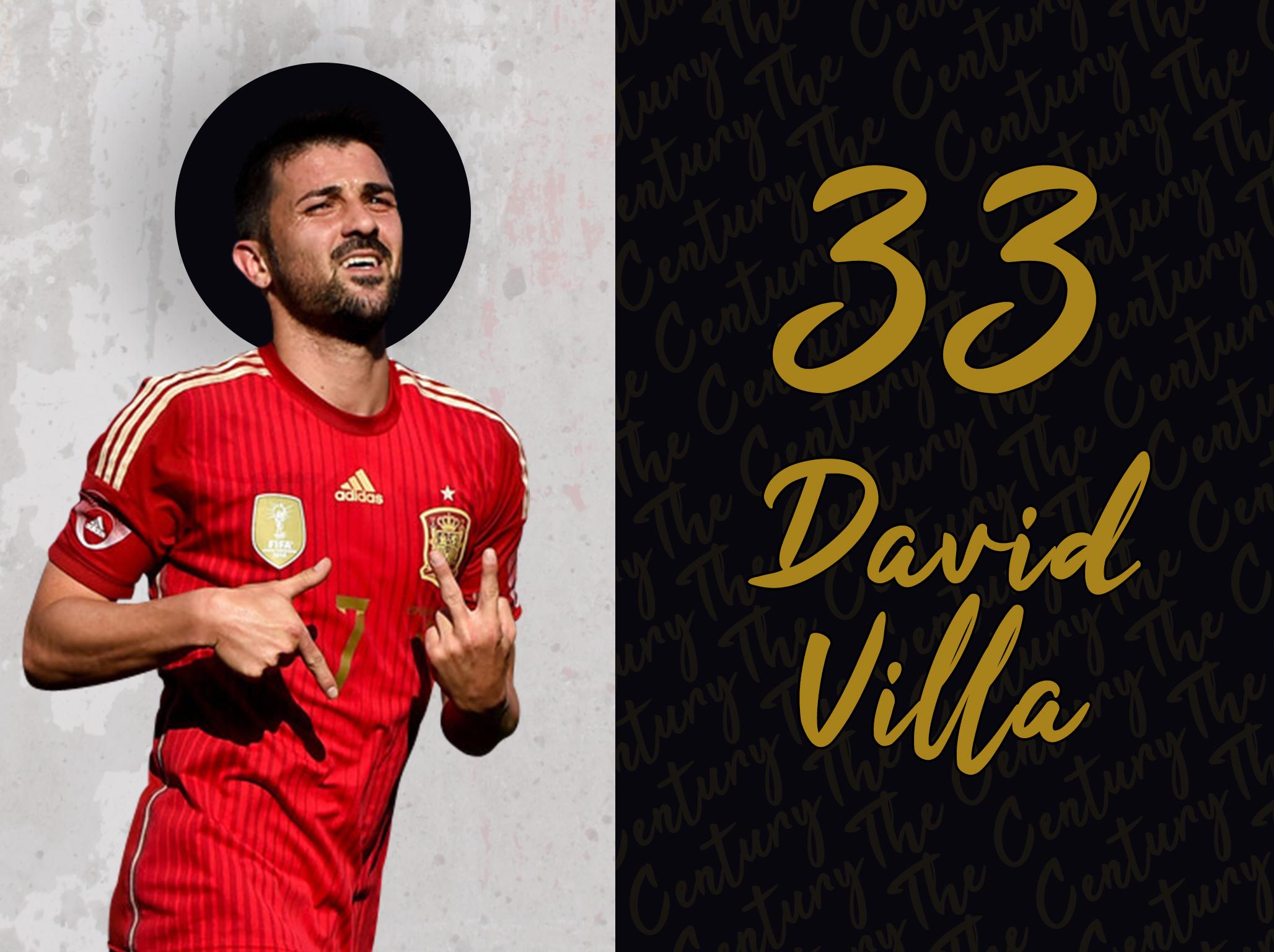David Villa was a truly complete superstar whose greatness should not be overlooked
The Century: This week, The Independent is counting down the 100 best players of the last twenty years, with the somewhat underrated Spanish striker at No 33

Your support helps us to tell the story
From reproductive rights to climate change to Big Tech, The Independent is on the ground when the story is developing. Whether it's investigating the financials of Elon Musk's pro-Trump PAC or producing our latest documentary, 'The A Word', which shines a light on the American women fighting for reproductive rights, we know how important it is to parse out the facts from the messaging.
At such a critical moment in US history, we need reporters on the ground. Your donation allows us to keep sending journalists to speak to both sides of the story.
The Independent is trusted by Americans across the entire political spectrum. And unlike many other quality news outlets, we choose not to lock Americans out of our reporting and analysis with paywalls. We believe quality journalism should be available to everyone, paid for by those who can afford it.
Your support makes all the difference.Asked to name the most important player of Spain’s golden age from 2008 to 2012 most pundits will say Xavi Hernandez or Andres Iniesta, or maybe Iker Casillas or Sergio Ramos, depending on club allegiance. But it was David Villa’s super reliable goalscoring which turned La Roja’s stunningly talented generation of ball-players into a serial winning machine.
Even before Luis Aragones converted La Roja to tiki-taka in late 2006, El Guaje had emerged from the shadow of national hero Raul Gonzalez to score three times at the previous summer’s World Cup. Not really the type of centre-forward who liked to rove deep and link the play, Villa’s characteristics did not immediately seem to fit with this ‘new’ Spain.
Wily Aragones kept him in the side, and was rewarded with a hat-trick in the Euro 2008 opener against Russia. A late winner against Sweden then ensured passage to the knock-out rounds. He scored the crucial first penalty in the quarter-final shoot-out win against Italy, and despite leaving the semi-final early through injury was still tournament top scorer as Spain’s 44 year wait for an international trophy ended.
Villa’s contribution at World Cup 2010 was even more crucial, as Vicente Del Bosque’s more solid team basically just kept the ball for most of the game and relied on their number seven to take one of the very few chances created. After the 0-1 shock defeat to Switzerland in their opener, Villa scored both in the vital win against Honduras, then the opener in the 2-1 victory over Chile.
Into the group stages, he hit the only goal as Spain edged past both Portugal and Paraguay. Carles Puyol and Iniesta of course scored in the semi and final, but Villa not being named player of the tournament after getting five of the winning team’s eight goals just seems wrong in hindsight, if typical of how often his contribution was at least partially sidelined or minimized.
That may have been because Villa was not initially linked to either Barcelona or Madrid. He gradually scored his way up the ladder from hometown club Sporting Gijon through Real Zaragoza and Valencia to the Camp Nou. There he again had to adapt his game and take a more peripheral role as Lionel Messi filled centre stage, while still managing 48 goals in 119 games. Having not scored in the Euro 2008 and WC 2010 finals, it was fitting that he netted in the 2011 Champions League decider against Manchester United.
A broken leg at the 2011 Club World Cup was hugely significant for both Villa and Spain, who kept trying [and failing] to find someone with the movement and intelligence to score goals in their system. After leaving Barca for Atletico Madrid, his contribution to their startling 2013/14 La Liga victory is also shockingly under appreciated. Accepting Diego Simeone’s tactical and physical demands despite rarely being 100% fit, he still scored 15 times in 47 appearances.
“The one thing I am proudest of is that I have known how to adapt to many positions,” Villa told El Pais in 2014. “I’ve almost always worn number seven, but have played at nine, eleven, ten and also seven… Being able to adapt has given me the chance to play in many teams in very different ways. To score goals you need to be born with this instinct, but then you must work hard on it.”
By summer 2014 Villa had won the World Cup, Euros, Champions League, three La Ligas with two clubs and three Copas del Rey with three different sides. His 59 goals in 98 Spain caps was also a national record. But he has never made a Ballon D’Or podium, and was picked just once in the annual FIFPro XI [compared to Ramos’ 10 appearances, Iniesta 9, Xavi 6, Casillas 5, Gerard Pique 4, Puyol 3, Xabi Alonso 2 and Fernando Torres 2].
A move to MLS did not mean semi-retirement – as he nabbed 80 goals in 126 games in a New York City team not challenging for titles. He is still going even now at age 37 – scoring 12 goals in 23 J1 League games for mid-table Vissel Kobe over the last 12 months, with his joy each time the ball hits the net clear from the clips shared via his social media.
“My role will be the same as always, to help out, to be one more,” he said on arrival in the US. Such humility has seen Villa often overlooked compared to more charismatic or just louder teammates. But it has always served him and his teams well, and means El Guaje is probably the most complete striker in all of world football.
Join our commenting forum
Join thought-provoking conversations, follow other Independent readers and see their replies
Comments